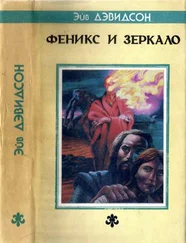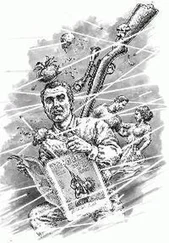Аврам Дэвидсон - Peregrine - primus
Здесь есть возможность читать онлайн «Аврам Дэвидсон - Peregrine - primus» весь текст электронной книги совершенно бесплатно (целиком полную версию без сокращений). В некоторых случаях можно слушать аудио, скачать через торрент в формате fb2 и присутствует краткое содержание. Год выпуска: 1971, ISBN: 1971, Издательство: New York : Walker, Жанр: sf_all, на английском языке. Описание произведения, (предисловие) а так же отзывы посетителей доступны на портале библиотеки ЛибКат.
- Название:Peregrine : primus
- Автор:
- Издательство:New York : Walker
- Жанр:
- Год:1971
- ISBN:0802755461
- Рейтинг книги:5 / 5. Голосов: 1
-
Избранное:Добавить в избранное
- Отзывы:
-
Ваша оценка:
- 100
- 1
- 2
- 3
- 4
- 5
Peregrine : primus: краткое содержание, описание и аннотация
Предлагаем к чтению аннотацию, описание, краткое содержание или предисловие (зависит от того, что написал сам автор книги «Peregrine : primus»). Если вы не нашли необходимую информацию о книге — напишите в комментариях, мы постараемся отыскать её.
Peregrine : primus — читать онлайн бесплатно полную книгу (весь текст) целиком
Ниже представлен текст книги, разбитый по страницам. Система сохранения места последней прочитанной страницы, позволяет с удобством читать онлайн бесплатно книгу «Peregrine : primus», без необходимости каждый раз заново искать на чём Вы остановились. Поставьте закладку, и сможете в любой момент перейти на страницу, на которой закончили чтение.
Интервал:
Закладка:
Thus did day follow day and night follow night.
The road went ever on and on, and, league by league and day by day, the grassy verges crept closer to the center. Nights and days alike grew cooler, and fires were kindled for more than cooking purposes, now; and the winds blew more briskly. Trousers, which would, even in the provincial cities, have been scorned as the mark of the barbarian tribes, one day made their appearance; and were gratefully accepted and as gratefully worn.
”Quite some number of others have been round about here not long ago, Sir,” Captain Serverus observed one day.
“What sort of others, then?”
“Huntsmen, I should say, Sir. Seemed to have flushed bigger game than yellow-deer or red. But that’s to be expected as we get farther north and farther in towards the wilder land.”
Peregrine nodded. “Well, Captain, I know you will continue to keep your eyes open, and me informed. I should like to speak with them, if our paths cross.”
Travel by land since leaving Chiringirium had certainly been quieter than travel by land or by river before then. It had given him time to “settle back into himself,” as he thought of it . and, thinking so, realized that the himself was no longer the same one as before. That night they encamped on a bare knoll
which brought from Captain Serverus grunts of satisfaction, it being evidently to his way of thought ideally suited for military purposes; though such might not be Peregrine’s or anyone else's purposes, the captain was what he was and what he had been trained to be. “From here there is good view and sight,” he said.
There was. And Peregrine, after the evening meal, walking about as usual, remarking on the fading sun and wondering if more of the same lay ahead on the morrow feeling rather bored with the thought regarding the view, observed a number of fires in the distance. Quite suddenly he felt that even the company and conversation of charcoal-burners, could he understand it, would be a welcome change from the sanctimonius unctuousness of his steward, the over-close and somewhat doglike devotion of his body-servant, and the crisp and impersonal attentions of his captain.
They were all at meat.
Quietly and matter-of-factly, he went to where the horses were tethered, selected a riding-horse he had not ridden that day, saddled him, and —with a word or two to the guard circling the camp on his rounds—walked the animal off. What were probably the last, late frogs of the season croaked dismally in the ditches their melancholy and unanswerable question of JTee-dit? JVee-dit? ... or, at least, so it sounded to him. It did not sound to him at all like brekekekex koax koax . . . until at length, still unanswered, the question was pounded out by the sound of the quickening hooves.
He could nowhere see the fires from the level ground along the road. Several times he essayed to climb again and scout about. It was while he and his mount were standing stick-stock-still that he observed in the dimlight a hand take hold of his bridle, heard a voice ask, “Quo vadis, peregrinatus?”
The voice was neither friendly nor hostile. It took a moment for him to realize that it had named, not his given name, but his state of wandering. He was considering how to frame his answer, when his sword was swiftly slipped from its scabbard.
“There was no need for that,” he said, feeling, rather than seeing the more than a few men surrounding him . . . them . . .
The reply was not in words. The horse was led forward into the darkness;^and Peregrine, on the horse.
Branches whipped his face, and he crouched against the neck of his mount, not looking up until the same voice (silent throughout this going) said, “Down.” He dismounted.
Low were the fires which gave the only light, and now and then they brightened, and now and then they dulled. Figures, robed in color of night, crouched, fanned the embers with their long sleeves. Other figures were clad the same. Peregrine saw no face. He did not really realize that his hands were bound until he tried to move them. “You who stole the banner of the Great Black God,” the voice said; “you who came to spy: you shall stay to pray.” Hands pressed against his shoulders, hands pushed against his chest, legs prevented him from falling backward, he sank upon his knees.
Blocks of turf were brought and piled. A black cloth embroidered with figures and symbols which he was unable clearly to make out, was spread over the pile. And then once again, as in that far-off night, with Claud and Appledore, the mystery began its enactment: this time with two differences: he saw, as well as heard; he was not free, but bound. The chanting, as before, was in more than one tongue ... in at least two . . . and, even when it was in the one he understood, he did not understand it all.
It was as strange to him, in its way, as the masses and liturgies and other ceremonies which he had attended, or, at any rate, witnessed. And it was at the same time quite different. Darlangius had been content to ask of him no questions, to press no points—certainly not the point of that famous or infamous impaling-stake to which Attila had so vividly referred—nor could Peregrine imagine Darlangius treating anyone else in such fashion. The ceremony he was now witnessing was in some few places now and then reminiscent of the others; in more places it put him in mind of certain strictly pagan ceremonies he had himself observed back in Sapodilla. In addition, there were nuances which were familiar (no . . . too strong a word . . .), nuances with which he was not totally unfamiliar, either from having read or having heard of certain things.
They know who I am, was his astonished and recurrent thought. He realized that of course they need not, probably did not, know who he was in the entirety of who: did they indeed know that he was Peregrine the son of Paladrine, by-blow to a minor king, that he had at the age of twelve lost his virginity to
the nurse-maid of his infant half-brother, that he loved lamb dressed with garlic and was somewhat afraid of spiders? Not likely. Clearly, though, they knew that he, whoever he was, had that pennon which and then he tried to call to mind all the circumstances of his having picked it up and then he was carried away by the unfolding mystery. Some of the words, phrases, he had heard before. Others were new to him.
The great black goat . . . the ram and goat are one . . . Ammon Immanuel . . . Ammon Dulkarnahyeen . . . Essus Chresthus niger est sed formosus . . .
"Behold the Ram of God," the chant suddenly became quite clear, "who taketh away the sins of the world!" But as to what he was to behold, Peregrine in the leaping darkness and the falling light, was less than uncertain. And then began a litany. "Seventh Son of the Seventh-Born Son of God," a voice intoned; and, from the shadows: “— pray for us!"
"Twelve Apostles of the Great Black Christ —”
“—pray for us!”
"Saint Aries —”
“—pray for us!”
Caught between astonishment and confusion, Peregrine said, half-aloud, half to himself, “But Aries is itself The Ram . . .” Regardless, the litany swept on, waves advancing, breaking, ebbing, falling away;
"Saint Taurus —”
“Pray for us!”
"Saint Gemini —”
"Saint Cancer. . . Saint Leo . . . Saint Virgo . . . Saint Libra .
. . Saint Scorpio ...”
“Pray for us! Pray for us! Pray for us! Pray for us! Pray for us!”
In astonishment, in wonder, in confusion, in an amazement which yet acknowledged a certain logic in the invocations, Peregrine, on his knees, heard the hooded congregation continue to call upon the gods of the ancientmost heavens in the guise of apostles and saints—apostles and saints of a Christ certainly not the Christ elevated (and not so long ago) to the status of One, True and Only throughout the already crumbling remnants of the Roman Empire.
Читать дальшеИнтервал:
Закладка:
Похожие книги на «Peregrine : primus»
Представляем Вашему вниманию похожие книги на «Peregrine : primus» списком для выбора. Мы отобрали схожую по названию и смыслу литературу в надежде предоставить читателям больше вариантов отыскать новые, интересные, ещё непрочитанные произведения.
Обсуждение, отзывы о книге «Peregrine : primus» и просто собственные мнения читателей. Оставьте ваши комментарии, напишите, что Вы думаете о произведении, его смысле или главных героях. Укажите что конкретно понравилось, а что нет, и почему Вы так считаете.






